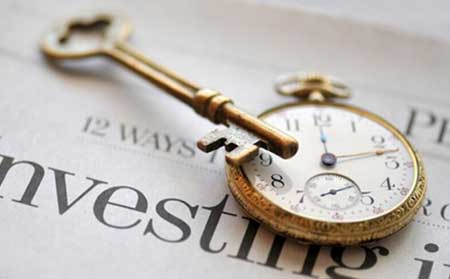Buying and selling property is a key move in the financial chess game. Imagine the property market as a giant chessboard, with each property being a piece on the board. Buying a property is like making a carefully calculated move on the board, and selling a property is about taking back your piece at the right time and hoping to maximise your return. Not all pieces on the board are of equal value. Factors such as location, surroundings, accessibility, etc. all affect the value of a property. Just like choosing a strategic location in a chess game, choosing a good location may bring you higher returns in the future. Buying a property is like making your first move in a big chess game. It requires careful planning and forethought. Caring bout our financial situation, just like making sure you have enough pieces before you play. Confirm that you have built up a down payment. Also, consider the mortgage payments, which is like calculating your next few moves in a chess game.

Selling your home is more like finding the right time to "close". Ideally, you want to sell when prices are rising, like looking for your opponent's weaknesses in a game of chess. But you also need to consider the uncertainty of the market, and sometimes it may be wiser to be conservative and get out of the game securely. In the property market, understanding and adapting to changes in the market is like understanding and anticipating your opponent's intentions in a game of chess. The property market is often likened to an ever-changing tide. This market can sometimes be as high as the ocean tide, with prices rising and transactions active, and at other times it can be as low as the ebb tide, with prices falling and both buyers and sellers becoming cautious. Market supply and demand play an important role in the property market. Knowing the supply and demand for property in your area can help you make more informed buying and selling decisions. It's like determining which pieces are critical and which can be sacrificed when playing chess.

In real estate investment, judging whether to continue to hold a property or sell is like deciding whether to continue to attack or retreat in a chess game. If the market is predicted to continue to rise, it may be more favourable to hold; however, if it looks like the market is going to fall, then selling may be the safer option. The key to success in the ever-changing tides of the property market is understanding and adapting to market changes.

By focusing on economic indicators, market supply and demand, and policy regulation, investors can make better decisions. Just like in a game of chess, where you understand your opponent and adjust your strategy according to changes in the situation, real estate investors need to be sensitive to the market and adjust accordingly. In this way, you will be able to occupy a favourable position in the big game of chess no matter how the market changes. Investing in property is more like a long-term strategic layout. Rather than just earning a short-term difference in price, you expect to make a profit by renting it out or appreciating it over time. It's like slowly building up an advantage in a game of chess and waiting for the ultimate victory.
In the great financial chess game of buying and selling property, every move should be made with care and every decision needs to be made with caution. Just like in chess, no one can predict the consequences of every move, but with careful analysis and sound planning, you can maximise your benefits and minimise your risks. Selling a home, it's not just a transaction, it's a lifestyle choice. After all, it's not just the outcome that counts in this big financial chess game, it's the learning and experience of the process.





